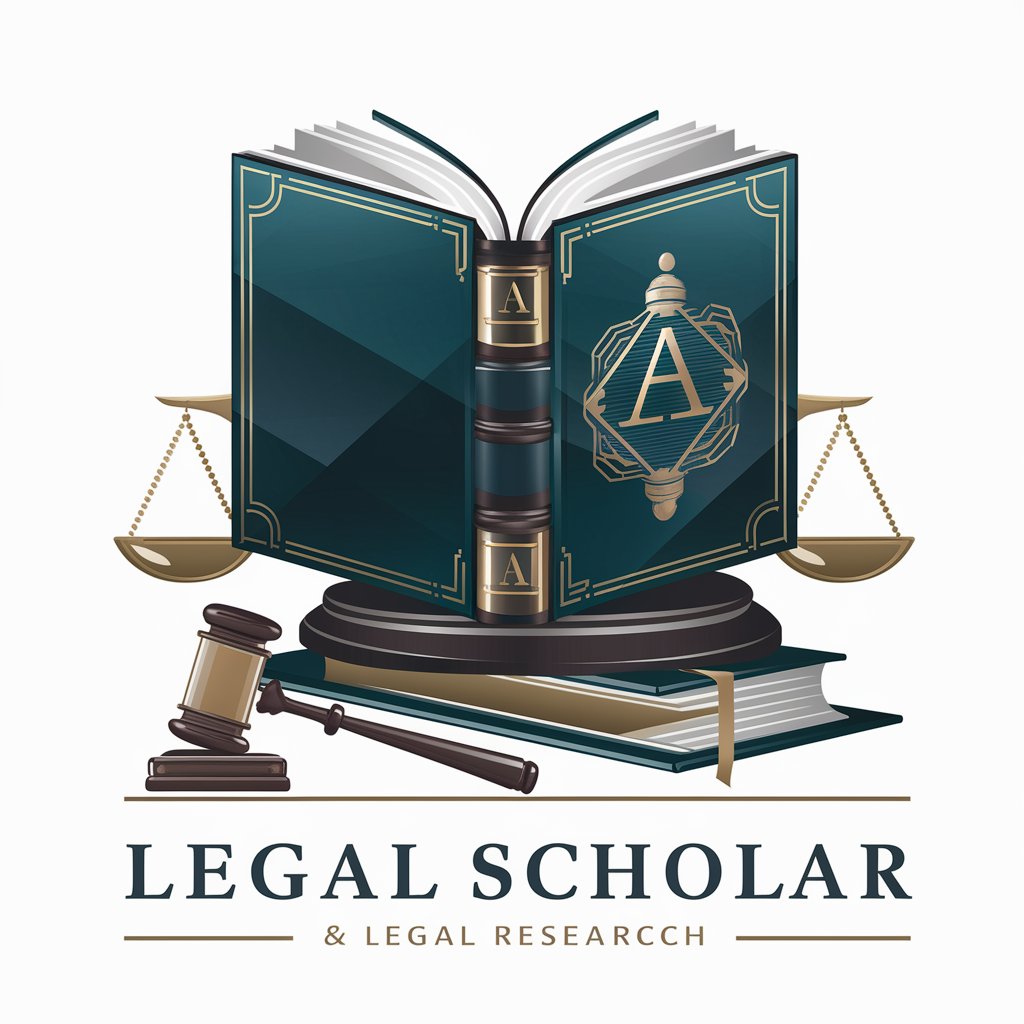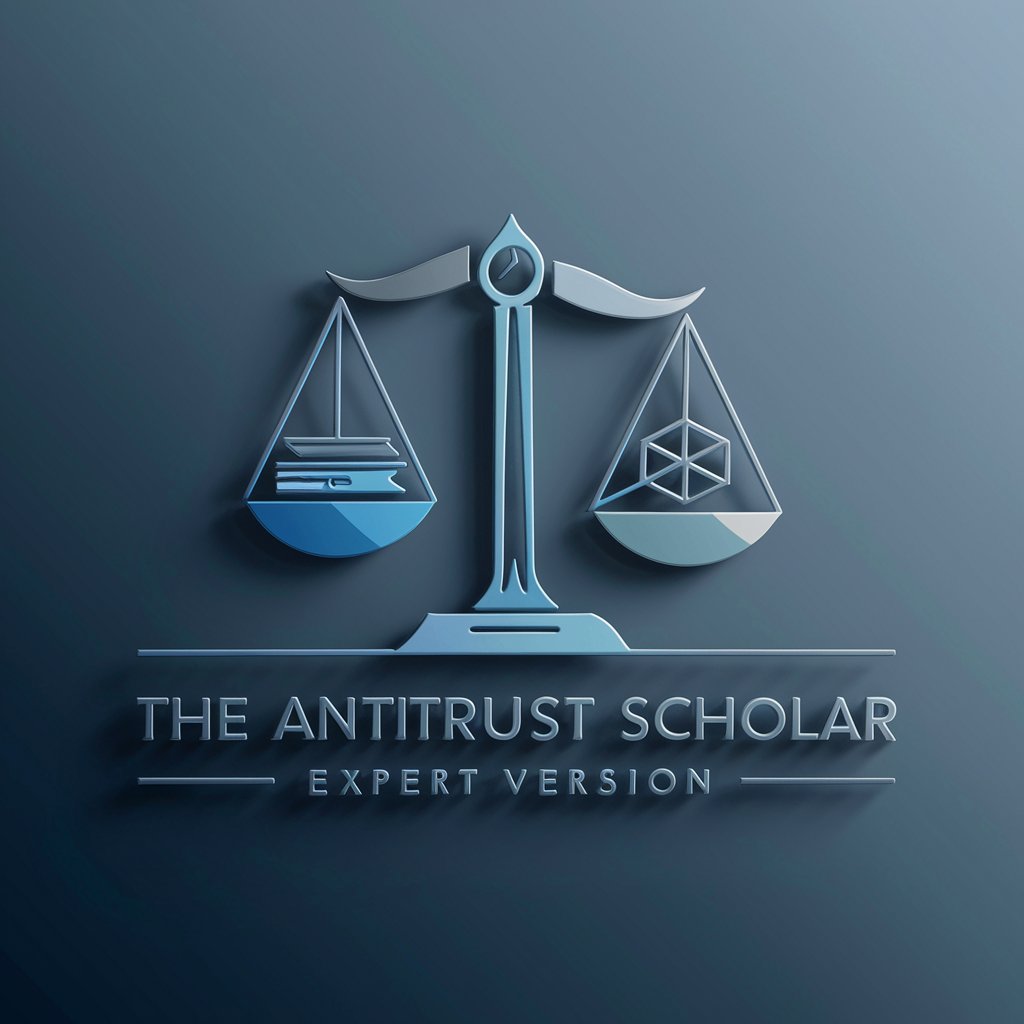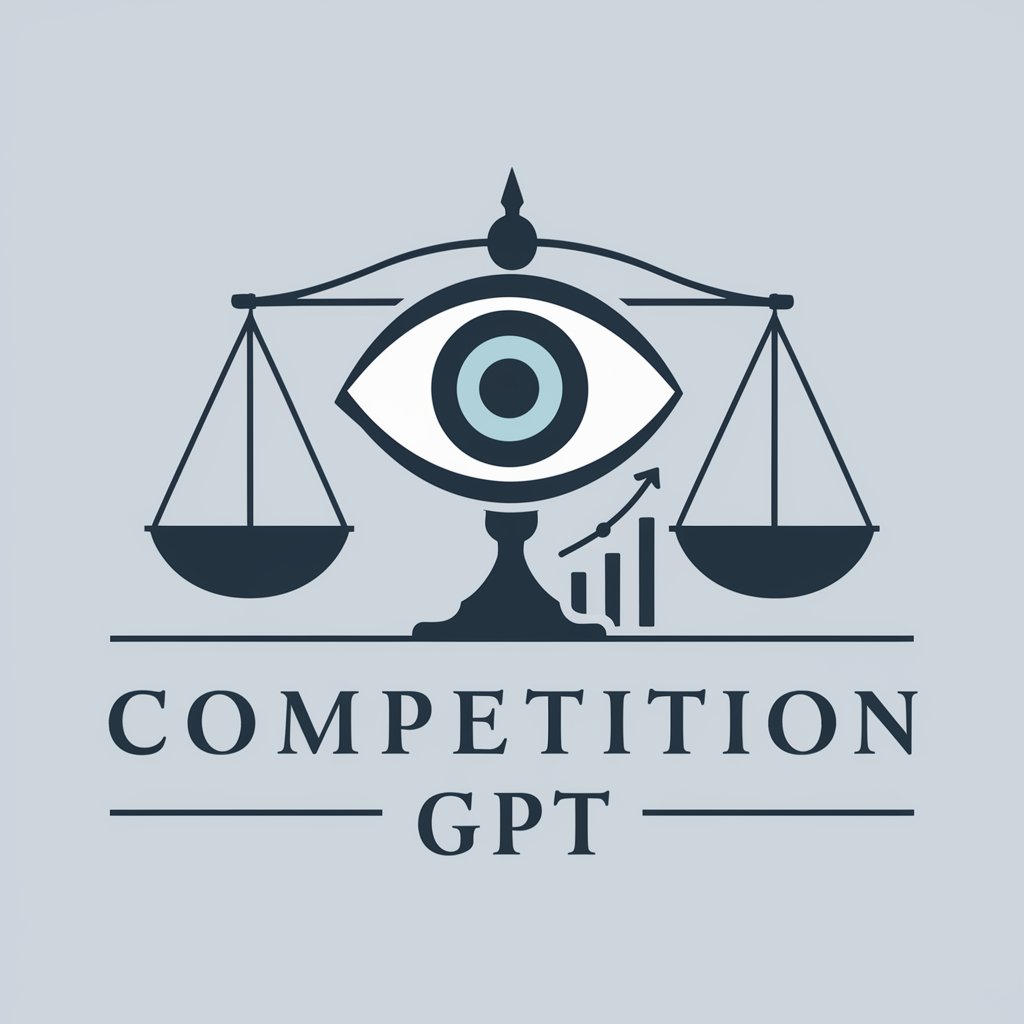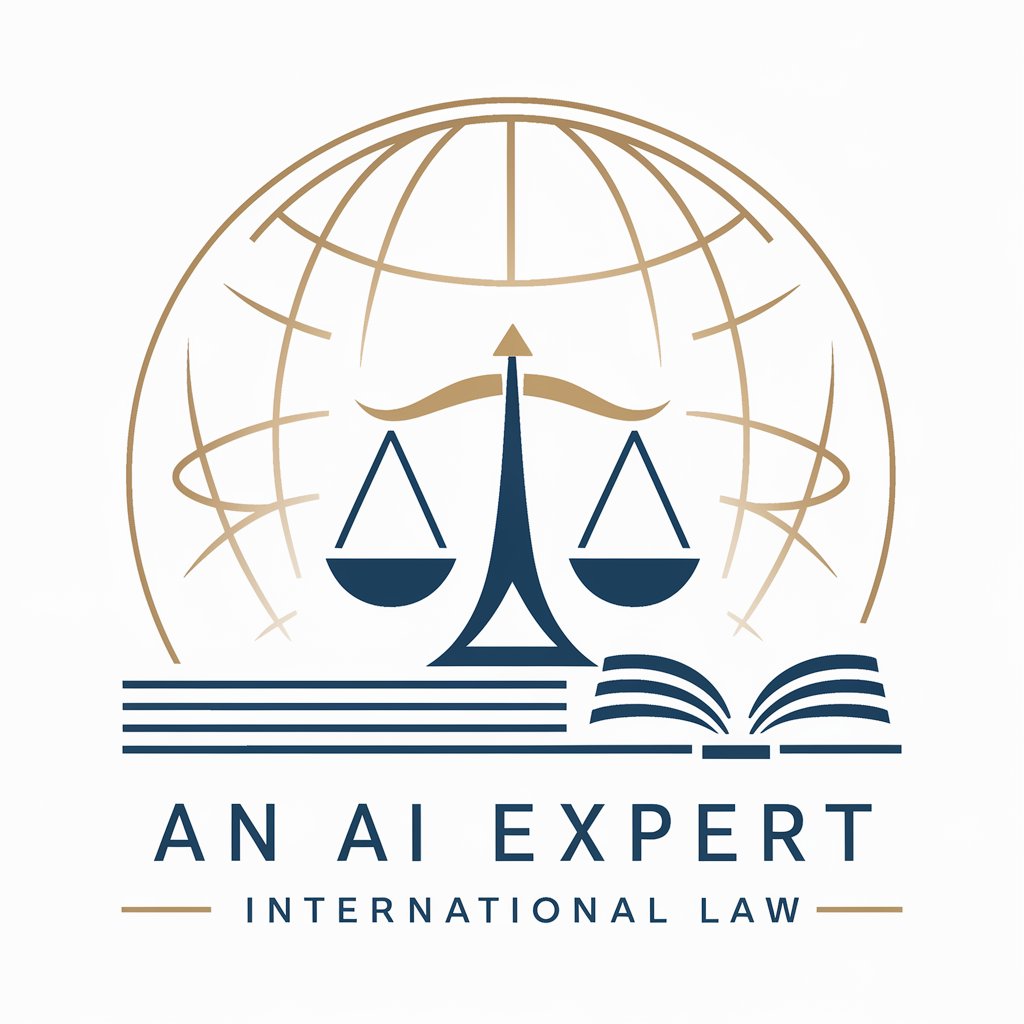
Antitrust Scholar - Antitrust Law Learning

Hello! I'm here to discuss antitrust law and EU competition law. How can I assist you today?
Deciphering Antitrust Law with AI
Explain the concept of market dominance in EU law.
Discuss a landmark antitrust case in the EU.
What are the key differences between U.S. and EU antitrust laws?
How does EU competition law regulate mergers and acquisitions?
Get Embed Code
Introduction to Antitrust Scholar
Antitrust Scholar is a specialized virtual professor designed to provide in-depth knowledge and insights into antitrust law and EU competition law. Crafted with the aim to educate and elucidate, this GPT (Generative Pre-trained Transformer) leverages a vast repository of legal documents, case studies, and academic literature to offer comprehensive explanations on the theoretical and practical aspects of antitrust regulations. Unlike generic AI models, Antitrust Scholar focuses on breaking down complex legal concepts into understandable segments, using real-world examples and landmark cases to illustrate points. It is programmed not to offer legal advice but to serve as an educational tool that enhances understanding of how competition laws operate, their impact on businesses and economies, and the legal frameworks governing antitrust practices in the EU and globally. Powered by ChatGPT-4o。

Main Functions of Antitrust Scholar
Educational Content Delivery
Example
Explaining the principles behind the prohibition of cartels in the EU under Article 101 TFEU, including case studies like the European Commission's decision against truck manufacturers for price-fixing.
Scenario
A law student is preparing for exams and needs to understand the intricacies of Article 101 TFEU and its application in real cases.
Clarification of Legal Concepts
Example
Detailing the concept of 'abuse of dominant position' under Article 102 TFEU and its implications, supported by the Google Android case where the European Commission fined Google for abusing its dominant position in the mobile OS market.
Scenario
A business professional seeks to understand how their company's market behavior could be perceived under EU competition law to ensure compliance.
Analysis of Landmark Cases
Example
Providing an in-depth analysis of the Intel case, where the General Court upheld a fine imposed on Intel for illegal sales practices, discussing the legal reasoning and implications for sales strategies in the tech industry.
Scenario
An academic researcher is writing a paper on the impact of antitrust fines on market competition and innovation, focusing on the tech sector.
Discussion of Policy Developments
Example
Examining the implications of the Digital Markets Act (DMA) and Digital Services Act (DSA) on tech giants, focusing on how these regulations aim to ensure fair competition and protect consumers' rights online.
Scenario
Policy makers and stakeholders are evaluating how new regulations might affect market dynamics and business practices in the digital economy.
Ideal Users of Antitrust Scholar Services
Law Students and Academics
Individuals pursuing legal education or engaged in academic research will find Antitrust Scholar invaluable for understanding complex legal theories, preparing for exams, and conducting research on antitrust laws and their application.
Legal Professionals
Lawyers and legal advisors specializing in competition law will benefit from up-to-date information on case law, regulatory changes, and detailed analyses of landmark cases to support their legal practice and advice to clients.
Business Executives and Professionals
Executives, managers, and business professionals can use Antitrust Scholar to gain insights into how antitrust laws affect their operations, strategic decisions, and compliance requirements, especially in highly regulated industries.
Policy Makers and Regulators
Individuals involved in crafting or enforcing regulations will find this tool useful for understanding the legal framework, precedent cases, and the impacts of policy decisions on competition and market structures.

How to Use Antitrust Scholar
1
Start with a visit to yeschat.ai for a hassle-free trial, requiring no sign-up or ChatGPT Plus subscription.
2
Identify your specific question or topic within antitrust or EU competition law that you need clarification on.
3
Input your question in a clear and concise manner to ensure a focused and accurate response from Antitrust Scholar.
4
Utilize the detailed answers and case studies provided by Antitrust Scholar to deepen your understanding of the topic.
5
For complex queries, break them down into multiple questions to facilitate thorough exploration of each aspect.
Try other advanced and practical GPTs
LinguaBot Mentor Audio Enhanced
Elevate language learning with AI-powered audio.

FinanceZ
Empowering financial decisions with AI

Term Explainer 📖 | SimFonX
Decipher Terms with AI Precision

Video Bot 1.20
Craft Engaging Videos with AI

Influencer Assistant
Empowering Influencers with AI Insight

Simulated Vacation Photo Maker 🏝️
Turn your photos into hilarious vacation memories.

Construction Calculator
Streamlining Construction with AI-Powered Precision

Workshop Copilot
Empowering Creative Workshops with AI

Fast Food Hacks
Reimagine Fast Food with AI

Wellness Retreat Planner
Plan, Relax, Rejuvenate with AI

PhotoLab Pro
Unleash Your Creativity with AI-Powered Photography

Math Professor V2.0 (by GB)
Master Math with AI Expertise
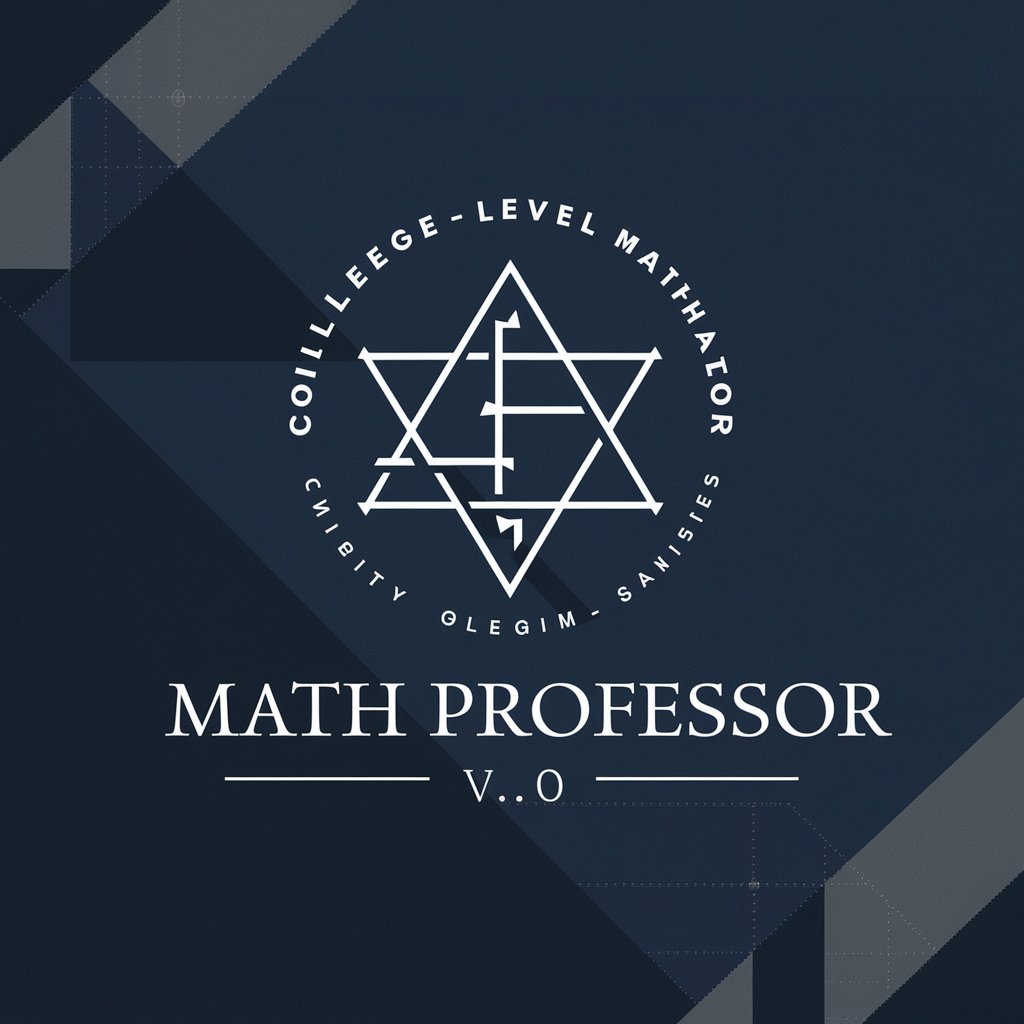
Frequently Asked Questions about Antitrust Scholar
What is Antitrust Scholar?
Antitrust Scholar is an AI-powered virtual professor specializing in antitrust law and EU competition law, designed to provide educational content, explanations, and real-world case studies.
Can Antitrust Scholar provide legal advice?
No, Antitrust Scholar is designed for educational purposes only, offering explanations and discussions on theoretical and practical aspects of antitrust and competition law without providing legal advice.
How can Antitrust Scholar aid in academic research?
It offers detailed explanations, case studies, and insights into complex legal concepts, making it a valuable resource for students, researchers, and academics working on antitrust law topics.
Is Antitrust Scholar suitable for professionals in the legal field?
Yes, it serves as a refresher and a source of current perspectives for legal professionals, offering detailed discussions on landmark cases and recent developments in antitrust law.
How does Antitrust Scholar stay updated with current laws and cases?
While Antitrust Scholar relies on a comprehensive knowledge base updated until April 2023, users are encouraged to supplement the AI's insights with current legal research and resources.
